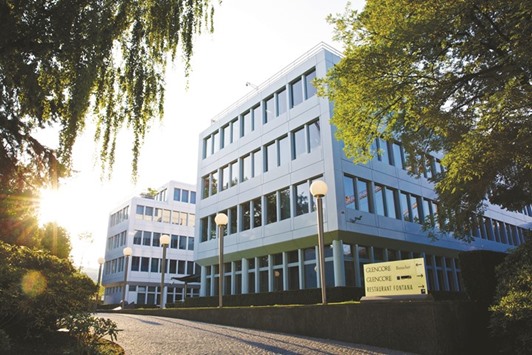Glencore’s decision to cut zinc production has done wonders for the price of the metal, but collapsing margins in the smelting industry suggest that it may not be too long before the Swiss commodity trader switches supply back on.
Less output means miners can squeeze smelters, paying them lower fees to turn concentrate from mines into the refined zinc metal used in steel for construction and car-making. Smelters, facing deepening losses and a shortfall in supply, are now starting to dial back production.
Nine of the top smelters in China, the largest refined zinc producer, have suspended, or plan to close production lines as the treatment charges they can collect from processing fail to cover costs, Antaike Information Development said Monday. Korea Zinc, the world’s largest smelter, has also cut output targets for 2017.
For Glencore, it’s a delicate balancing act. On the one hand, sustained production cuts boost prices. But on the other, the resulting drop in treatment fees risk damaging their own processing business as well as hurting customers.
“Closing mines to drive up prices is all very exciting, until your customers start dropping out of the market,” said Tom Price, a commodities analyst at Morgan Stanley in London.
Refined production cuts seen this year have helped to tighten the market and bolster the bullish case for prices, which have rallied about 70% since Glencore announced its cuts, equivalent to about 3.5% of global supply, in late 2015. But the collapse in smelting profits highlight a dilemma for miners as they cash in on a long-awaited supply deficit.
Glencore runs the third-largest zinc smelting business in the world, and the deals it strikes with other miners to supply its plants with concentrates are sufficiently large that they have served as a benchmark for other buyers in recent years. It may be the world’s biggest miner, but it will need to work to protect smelting margins as it negotiates supply contracts for this year. A spokesman for the company declined to comment.
“If the miners insist on low treatment charge contract terms for 2017, quite a few smelters will probably stop operating,” Morgan Stanley’s Price said.
As a gauge of smelting profits, treatment charges are one of the key factors that will influence Glencore’s decision to bring back the mothballed tons that have transformed the market, chief executive officer Ivan Glasenberg told reporters on a call last month. Spot treatment charges for concentrates shipped to China have fallen to about $30 per dry metric ton, down from more than $100 a year ago, hurting the profits of smelters.
Still, Glencore isn’t ready to come to the rescue just yet.
“We will bring our operations online when we believe the market needs the concentrate,” Glasenberg told reporters.
That’s cold comfort for workers at the CEZinc refinery in Salaberry-de-Valleyfield, Quebec, owned by the Noranda Income Fund in which Glencore holds a 25% stake.
As well as being responsible for supplying the Valleyfield operation, Glencore is also in charge of running it.
For years, Glencore has been selling zinc concentrates to the plant under a long-term fixed price contract. But with profitability set to plummet once a new supply contract with lower processing fees comes into effect in May, the Noranda Income Fund is asking workers to share the pain by accepting a cut to pension payments. It’s also suspended payouts to investors in the fund, Glencore included.
A meeting between management and workers last month ended without resolution. The owners are now running the operation at about 25% capacity and using non-unionised staff, Luc Julien, an official with the Quebec branch of the United Steelworkers, said in a telephone interview last month. Striking workers are bracing for a protracted dispute, he said.
In the short-term, stoppages such as the one at the Valleyfield plant help to bring Glencore’s vision of a deep supply deficit in the refined metal market closer to reality. But as smelter outages increase, the restart of Glencore’s idled mine capacity may draw closer too.
“Ultimately the miners do need smelters,” Grant Sporre, an analyst at Deutsche Bank in London, said by phone, adding that Glencore will be keen to avoid widespread closures at the plants it supplies by increasing mine output. “I do think the day is getting closer.”
Peter Grauer, the chairman of Bloomberg LP, is a senior independent non-executive director at Glencore.

Glencore headquarters is seen in Baar, Switzerland. Glencore’s decision to cut zinc production has done wonders for the price of the metal, but collapsing margins in the smelting industry suggest that it may not be too long before the Swiss commodity trader switches supply back on.
